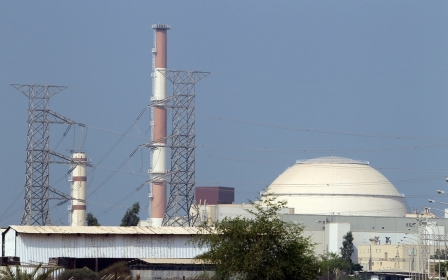Implementation day arrives for Iran nuclear deal

The International Atomic Energy Agency announced on Saturday that Iran had implemented all the requirements agreed to in a deal with world powers on 14 July of last year to limit its nuclear activities, which triggered the automatic lifting of nuclear-related economic sanctions imposed by the United Nations, European Union and United States.
What does implementation day actually mean?
Implementation day marks the point when the IAEA confirmed that Iran took the necessary steps to reduce 98 percent of its uranium stockpile and render the rest of its nuclear programme unable to create a weapon for the next 15 years in return for gradual sanctions relief.
What kinds of sanctions are being lifted?
The EU and the US will lift “secondary sanctions”. These include “access to the US financial sector for non-US persons engaged in significant transactions with Iranian individuals or entities”, according to Katherine Bauer, a senior fellow at the Washington Institute.
The most significant form of sanctions relief, however, is the repeal of restrictions on Iranian oil revenue, “a primary source of hard currency”, she said.
Non-nuclear related sanctions will remain in place, including those against support for Iran’s ballistic-missile programme.
How does sanctions relief affect Iran’s economy?
It will relieve stresses to Iran’s banking, energy, shipping and automotive industries.
As a result of sanctions being lifted, Iran will have access to about $100bn previously frozen in foreign accounts. About half that sum, according to a New York Times report, will go towards paying off foreign creditors.
The Iranian government has said that the other half will go towards rebuilding industries and infrastructure. Sanctions relief will also “open the door to foreign investors who are keen to enter a relatively untapped market of 77 million people”, according to Bloomberg Business.
Iranians will be able to transfer funds with overseas relatives and trade in everything from carpets to crude oil, according to the New York Times.
What are sticking points?
Many of President Obama’s critics say the deal may be dangerous to the US, and that Iran may use their unfrozen assets to support terrorism and towards building a nuclear weapon, the New York Times reported.
Stay informed with MEE's newsletters
Sign up to get the latest alerts, insights and analysis, starting with Turkey Unpacked
Middle East Eye delivers independent and unrivalled coverage and analysis of the Middle East, North Africa and beyond. To learn more about republishing this content and the associated fees, please fill out this form. More about MEE can be found here.




